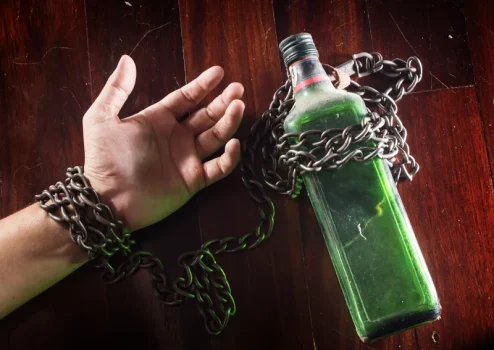
Making these adjustments not only helps reduce bruise formation but also promotes overall well-being. Hello, my name is Ben Lemmon, and I’m the Vice President and Clinical Director amphetamine addiction treatment at Ohio Community Health Recovery Centers. I’ve been working in the addiction and mental health field since 2013 and decided to enter the field after overcoming my own challenges with addiction. My compassion, resilience, empathy, wisdom, knowledge, experience and love I have for this forgotten population goes beyond words. I consider what I do for the addicted population as a calling versus a “career,” because I too was once an “addict and alcoholic.” Today I am 45.5 years alcohol and substance free. I am a licensed social worker.In my scope of practice I have worked in the areas of mental health and recovery for thirty years.
- Yes, alcohol reduces your blood’s ability to clot by impairing platelet production and liver function.
- If alcohol has become a dominant force in your life and you can’t seem to quit drinking it, you should consider receiving alcohol addiction treatment.
- Also, if you’re short on iron (or specifically have iron-deficiency anemia, a condition in which your body is short on red blood cells), you might notice more marks on the skin, says Dr. Vyas.
- We treat alcohol addictions and mental health issues in an outpatient setting.
Alcohol & Heart Rate: Does Drinking Increase Cardiovascular Risk?
- Alcohol impairs coordination, weakens blood vessels, and affects the liver’s ability to produce clotting factors.
- Recognizing the signs of alcoholism is the first step toward recovery.
- And that can lead to some serious stuff, like stroke, heart attack or pulmonary embolism.
Someone who lives with an alcohol use disorder may experience lasting brain changes that make it difficult to stop drinking. If you’re aware that drinking is causing health problems, such as liver issues and bruising from alcohol, but you’re unable to stop drinking on your own, it’s time to seek treatment. Furthermore, if alcohol bruises are a result of liver damage, you likely have alcoholic liver disease, which causes severe dysfunction in the liver. Alcohol is known to be toxic to the liver, and a https://ecosoberhouse.com/article/5-tips-of-how-to-maintain-recovery-motivation/ majority of people who regularly consume 4 or more drinks per day will develop a fatty liver.
When should someone seek medical help for bruising related to alcoholism?
- Chronic alcohol consumption can disrupt this process and lead to deficiencies in key clotting factors such as prothrombin and fibrinogen.
- Alcoholism, a chronic disease characterized by an inability to control or stop drinking despite negative consequences, can have numerous effects on the body.
- If you already have unusual bruising, your liver could already be damaged, and that could mean that drinking at any level is not wise for you.
- When someone develops an alcohol use disorder, they will show signs or symptoms that are characteristic of this condition.
- This can result from minor injuries or trauma, but certain factors, including alcohol consumption, can exacerbate this condition.
A deficiency in this vitamin means that even minor injuries may lead to significant bruising. Alcoholics tend to bruise easily because of the blood vessels in their body breaking down. This can lead to bruising even when there is no trauma to the skin. Alcoholics may also have darker bruises due to the increased amount of blood in their body. If you notice that you or someone you know is bruise easily, it may alcohol and bruising be a sign of alcoholism. You probably know throwing back shots or chugging beers on the regular can damage your liver.
- While many things could lead to you developing jaundice, a common cause is high levels of alcohol consumption.
- Bruising occurs when small blood vessels under the skin break, allowing blood to leak into surrounding tissues.
- This impairment can result in a higher tendency to bruise easily since the body cannot effectively stop bleeding from minor injuries.
Frequently Asked Questions: Does alcohol cause bruises?
Platelets help the blood clot, so a low do you bruise easier when drunk level of them can cause easy bruising. Finally, alcoholics may have a deficiency of vitamin C, which is important for healing wounds. If you bruise easily and are worried that it may be a sign of alcoholism, talk to your doctor. Vitamin K is crucial for synthesizing several clotting factors, including prothrombin and factors VII, IX, and X. Chronic alcohol consumption can disrupt the absorption of Vitamin K in the intestines due to liver dysfunction and poor dietary habits.

If you frequently bruise after drinking, it’s advisable to consult a healthcare professional. They can assess your overall health and determine if there are underlying issues contributing to your increased susceptibility to bruising, such as liver function or platelet levels. The liver processes alcohol and produces various substances essential for maintaining overall health. Among these are clotting factors that help prevent excessive bleeding when injuries occur. Chronic alcohol consumption can disrupt this process and lead to deficiencies in key clotting factors such as prothrombin and fibrinogen. Second, alcoholism can lead to a condition called thrombocytopenia, which is a low level of platelets in the blood.
Reaction Time

Alcohol affects various aspects of health, including the liver’s ability to produce clotting factors essential for blood coagulation. When these factors are compromised, the likelihood of bruising increases. Alcohol impairs coordination, weakens blood vessels, and affects the liver’s ability to produce clotting factors. These combined effects increase the likelihood of bruising after drinking alcohol.
